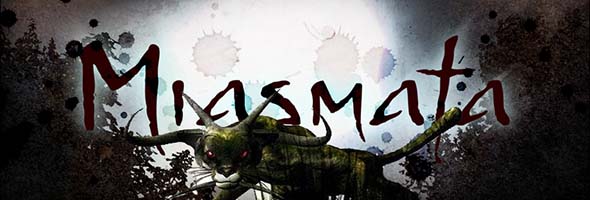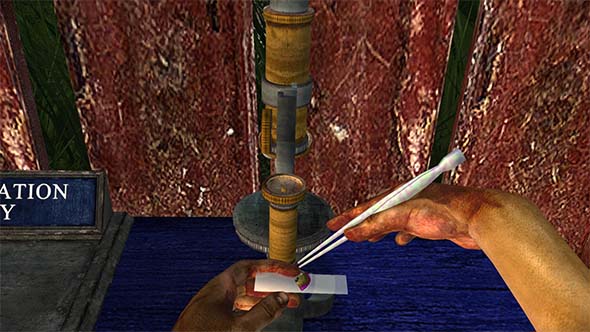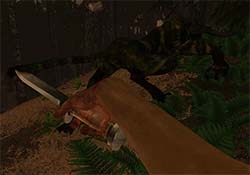
While looking for new survival horror games on Steam, I stumbled onto a very intriguing title: Miasmata. During my holiday break from work, I decided to boot up the game and see if it scratched my survival horror itch.
It didn't, on account of not actually being a survival horror game. But what I found instead was an equally interesting premise that immediately caught my attention and piqued my curiosity.
The Johnson brothers kept this game about as simple as it could possibly be (perhaps to its detriment). They had a core concept, and they stuck to it. As such, Miasmata is a very novel game. It is probably the only game that I've ever played that is solely about scientific research.
The end goal is to cure a disease that the character has contracted and then escape the island. This disease acts as the central challenge to the game: you have to periodically medicate yourself in order to control the symptoms, but all medications must be derived from the local flora. Failure to do so can slow you down, blur your vision, and eventually kill you. A sheer majority of the game, thus, consists of wandering around the island collecting samples of plants, and then returning them to the nearest laboratory to examine them and use them to concoct various potions. In addition to medicines, you can also create potions to enhance your physical strength and perception. Doing so will allow you to run and swim further, and allow you to always know your location on the map (respectively).

Stand back! I'm about to do SCIENCE!
Unfortunately, the process of analyzing the specimens is automated (via a skip-able cutscene). You don't actually have to do anything in order to figure out what the plant's effects are going to be, and no actual scientific knowledge is required by the player. Each plant also only has one effect, so the potion-making mechanic (which is the core of the game) is pretty shallow.
The effects of each plant will be noted in your journal, which is one of the best journal features of any game that I've ever played. It has a handy status page that includes pockets for storing your medicines, as well as holding your water flask. It also shows your objectives and has tabs to collected notes, your research results, and the map. The journal is also populated with hyperlinks that take you to the journal page with the relevant information. For example, if you find a note with ingredients for an objective drug, the status page will add a hyperlink to that note underneath the objective. It's every bit the journal that Silent Hill: Downpour wanted to have!
As you explore, you'll also find camps left behind by the deceased research team. These camps can contain notes that can reveal bits of backstory, provide recipes for various potions, or point you in the direction of key plant specimens. The camps also act as safe places for you to restock your supplies (including water), rest, and save your progress.
Keeping yourself hydrated and rested is important, as failure to do so can aggravate the symptoms of your illness and potentially kill you. Unfortunately, the feedback for this isn't terribly great. You'll get a notification when you're thirsty, but the game doesn't bother to tell you that you're tired. Instead, your health just starts rapidly deteriorating for no apparent reason. It took me a while to figure out that it was due to a lack of sleep.

Combat mechanics are present,
but they don't have any affect.
A curious omission is that you don't have to eat. The game even includes various weapons scattered around the island, and there is an attack and throw command. But you can't attack the hostile panther-like creature that occasionally appears to hunt you, nor can you hunt and kill any of the game's various wildlife (beetles, squirrels, birds, and so forth). So you can only run and hide from the creature, and you only collect plants, which don't need to be attacked in order for specimens to be collected. So why are the weapons and attack mechanic even in the game?
Probably the second most significant mechanic is the map triangulation feature. Instead of revealing the map passively as you walk through it, the player must actively identify the location of landmarks ...
[More]